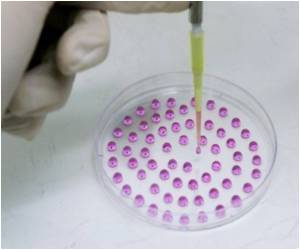A gene that can inhibit stem cells from developing into cancer has been identified by a research from Rockefeller University.

By identifying a mechanism that regulates programmed cell death in precursor cells for blood, or hematopoietic stem cells, the work is the first to connect the death of such cells to a later susceptibility to tumors in mice.
Research associate Maria Garcia-Fernandez, Hermann Steller, head of the Strang Laboratory of Apoptosis and Cancer Biology, and their colleagues explored the activity of a gene called Sept4, which encodes a protein, ARTS, that increases programmed cell death, or apoptosis, by antagonizing other proteins that prevent cell death.
To study the role of ARTS, the experimenters bred a line of mice genetically engineered to lack the Sept4 gene.
Newborn ARTS-deprived mice had about twice as many hematopoietic stem cells as their normal, ARTS-endowed peers, and those stem cells were extraordinary in their ability to survive experimentally induced mutations.
Indeed, the ARTS-deprived mice developed spontaneous tumors at about twice the rate of their controls.
Advertisement
ARTS interferes with molecules called inhibitor of apoptosis proteins (IAPs), which prevent cells from killing themselves. By inhibiting these inhibitors, under the right circumstances ARTS helps to take the brakes off the process of apoptosis, permitting the cell to die on schedule.
Advertisement
Source-ANI












